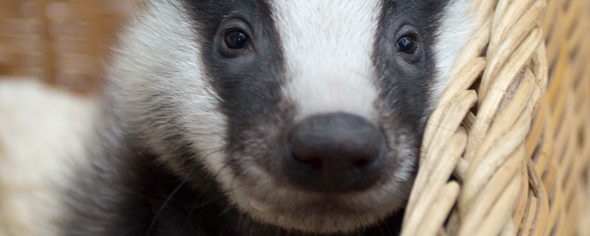A new pre-action letter has been sent to Defra and Natural England over ‘supplementary’ badger culling
Key Points
- A pre-action protocol letter has been sent to the S/S for Food, Environment & Rural Affairs and Natural England over the governments refusal to stop supplementary badger culling.
- ‘Confirmed’ bovine TB cattle herd breakdowns have risen in Gloucestershire and Somerset after one year of supplementary culling.
- New calls for a halt to supplementary culling in Gloucestershire and Somerset, and for Dorset not to start this year.
- Four weeks to go until the Court of Appeal re-examines a previous (2018) case challenging supplementary culling policy.
There is mounting public scepticism over the science and justifications behind mass culling of badgers in England. Badger culling has increased steadily since 2013 as a part of the Government’s attempt to control the livestock disease bovine tuberculosis (bTB).
Supplementary culling is the killing of badgers for a further five years or more once four years of intensive culling have been completed.
Recent correspondence with the government and Natural England follows release of data on 8 April showing that ‘confirmed New Herd Breakdowns’ (NHBs) have risen since the 2017 implementation of Supplementary Culling in the Gloucestershire and Somerset cull areas. Confirmed NHB’s in Gloucestershire jumped from 10 to 23 cases.
Following release of the data, the claimant is taking further action against the government to stop the issue of supplementary cull licences and has written to DEFRA and Natural England to formally request that DEFRA withdraw the Supplementary Culling Guidance and NE revoke licenses issued under the supplementary cull policy. A response is expected in a week. Further legal proceedings may follow.
In any event, the Court of Appeal will hear a case brought by Tom Langton in 2018 scheduled for 2/3 July which asks the Court to quash the supplementary cull policy guidance, issued in 2017. The hearing will also address other questions which have emerged over safeguards on protected nature sites from culling. The principal argument in the guidance case is that government lacked the necessary evidence and safeguards to justify the supplementary cull policy. The recent data on NHB confirms that supplementary culling is not associated with any bTB decline benefits and could well be contributing to policy and licensing failure.
Mr Langton, an ecologist who has worked on studies of wild animal diseases, is challenging alleged breaches of the Protection of Badgers Act 1992 by the government. In particular, he is challenging claims made by the Chief Scientific Officer Prof Ian Boyd that badger culling with an experimental approach could be a learning process, despite senior scientists and expert organisations in 2017 advising that such an approach might be counterproductive. He said:
‘’The government has indicated that it can adapt its policy on badger culling as further evidence becomes available. However, it is well established that it is not possible to definitively identify the source of bTB in cattle herds breakdowns, except in cases where a new strain of bTB has been imported through cattle trading or neighbour contact.
In truth, the badger culling policy is a policy with no stop button, and where there is no possibility of learning, just a direction to continue killing badgers forever, even if measures are not working. This repeats the mistakes made in The Republic of Ireland where badger killing for decades cannot be linked to any changes in disease levels.
The English bTB emergency requires crisis management as the current cattle testing regimes and movement controls are clearly failing. The Supplementary Culling policy is a road to no-where. Killing for the sake of killing. There is no potential for linking cause to effect, no scientific learning, and for that reason the policy is unlawful. It cannot show, as is required, that it is preventing the spread of disease.’’
FURTHER INFORMATION
In consultations held for the badger killing policy in 2011, Natural England appeared to indicate that badger culling was unlikely to contribute to disease reduction if other bTB control measures in cattle were not working. This consultation wording has since been redacted and is now kept secret.
Natural England’s new Chairman, environmentalist Tony Juniper is faced with a dilemma. Is he prepared to license the updated policy, that was initially introduced by former (2009-2013) NE Chairman and dairy farmer Poul Christensen? He has to decide over the next few days and weeks whether to agree to support an acceleration of badger killing by around 25% to 40,000 badgers annually, starting this September. This would take place despite the lack of evidence of any contribution to reduction in disease spread and evidence that the policy could be worsening the crisis.
Please help to support the case:
Donate

